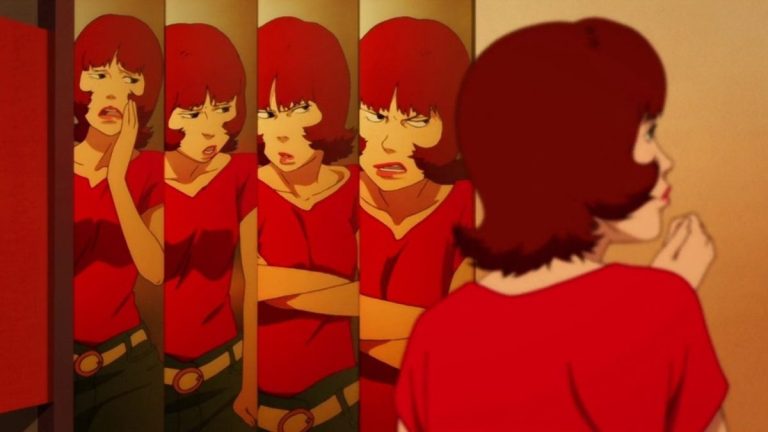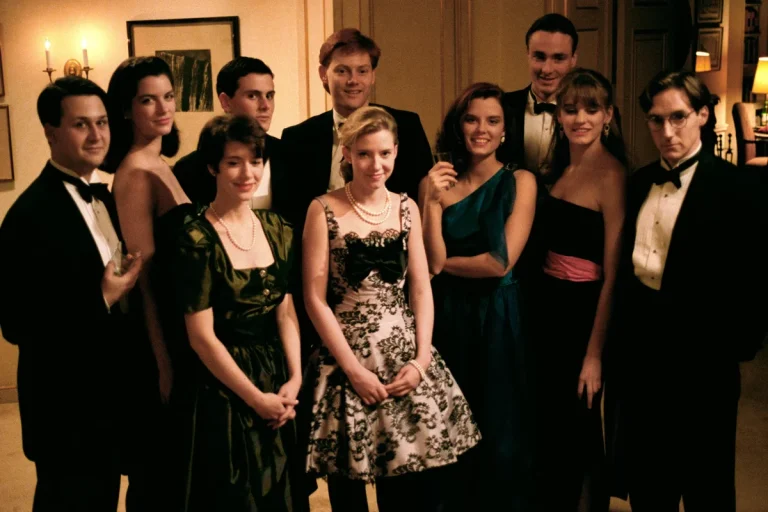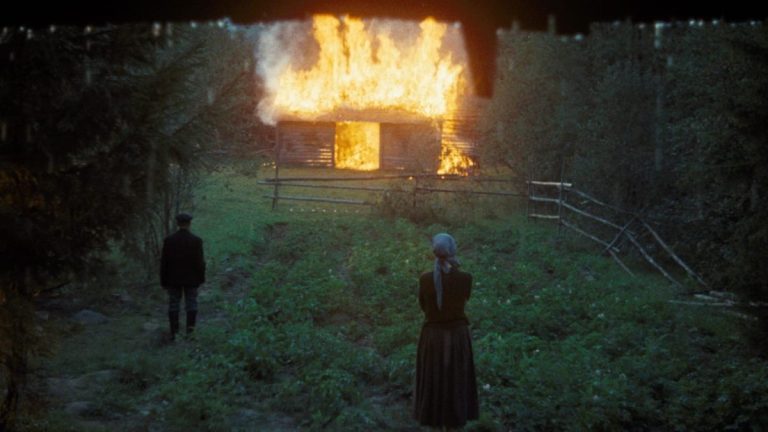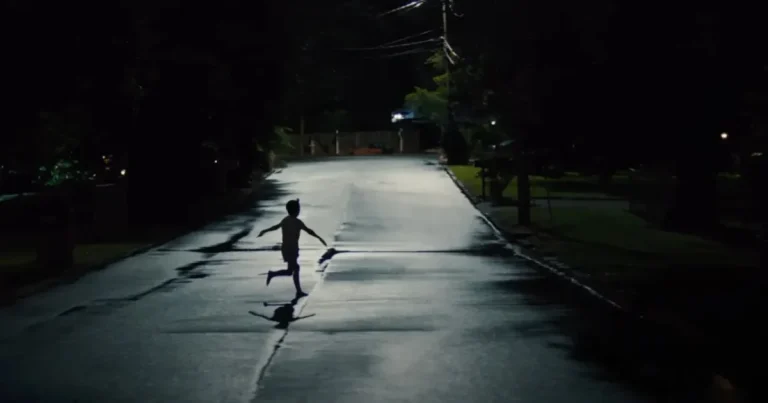Sean Baker’s Raw American Dream: America is a cherished, overwhelming fantasy. It dictates world trends and creates its own ideologies, which in return lead to other new movements, political or artistic, provoked to elevate or oppose their source of motivation. It is not only the glamor of this country that is appealing. There seems to be an inexplicable power that manages, even from the first breath, to possess the body of anyone who dares to set foot on this land. Proclaimed as the land of the free where opportunities and possibilities galore, it feels easy to find a reason to go around and prove one’s importance as a functioning member of society. To be more concise, anyone can be highly regarded and respected as long as they have the will and skills to achieve it.
Hardships are overlooked because they are seen as an inevitable part of climbing to the top. Failures emphatically outnumber successes, yet due to simple and inherent human selfishness, society’s focus is not on rejects but on the accepted. Seeing how the poor live, however, one can make a sober assessment of the real state of the economy and the psychology of this nation, subservient to fame, easy riches, infatuated with its own longings and ideals. Sean Baker shows this ugly, unfamiliar side of America in his films.
The strangest thing about his filmography can be found by watching his films chronologically instead of by popularity. By doing so, it is easier to notice the obvious progress not only in terms of budget but in the way the camera moves, how it captures the characters and the use of light; one can see the growth of a young director with a straightforward approach in telling a story and expressing attachment to a particular genre – the social and domestic drama. The characters often have no specific motivation other than looking for a home and making easy money. Their opponents are not some external factors. In fact, the world outside constantly offers those people a way out. Still, their socially conditioned temperament does not allow them to save themselves.
This is what makes these characters so endearing to the viewer – any one of us could find ourselves in an unfortunate situation like theirs, and if we dare to think deeply about it, we would probably act just like them. Our sympathy is not because they’re the main characters, and we should root for them, but because of their honesty. They want to be more than what they can be.
They set ambitious goals and want to take over the world, and it seems like they’re on the right track before it all comes crashing down and they sink deeper than we’ve seen them in the opening few minutes. It’s a recurring aspect in Sean Baker’s oeuvre, and I can’t determine if it’s for better or for worse because, at times, it feels sudden and rushed, and in other situations, it’s just at the right moment to punch the viewer in the face.
“Starlet” is an example of the latter. It’s probably Baker’s most obscure and overlooked film, whose merits extend beyond the acting. Extremely bright, filled with warm, mostly painted in yellow hues, the story revolves around flawed, lonely individuals in constant anticipation of some danger to strike them, even when none exists. We see two lives separated by a huge age difference but brought together by chance. The younger generation, hungry for fame, irrationally believing in someone’s promises of success and escaping from the small town to the capital of dreams, lacking the moral compass to decide what is the right thing to do when a problem arises and seeking advice from a manipulative friend. These qualities define the character of Jane, the girl who accidentally finds a vast sum of money hidden in a thermos she bought at a sale.
The owner of the thermos is Sadie, an isolated eighty-five-year-old widow who, until her meeting with Jane, waits to disappear from the world. Her youthful dream of going to Paris remains unfulfilled, and she finds little pleasure in her daily life with the games of Bingo, which she regularly loses. But we shouldn’t be fooled into thinking this is a clash between two realities. On the contrary, a (somewhat) sincere friendship emerges in which both parties care for each other. Even the viewer knows the reason for the beginning of this relationship, which is the guilt Jane feels for keeping the money she found, and hopes there is a happy ending to this story because we see how prominent the need is and how beneficial it is for the women to stay together.
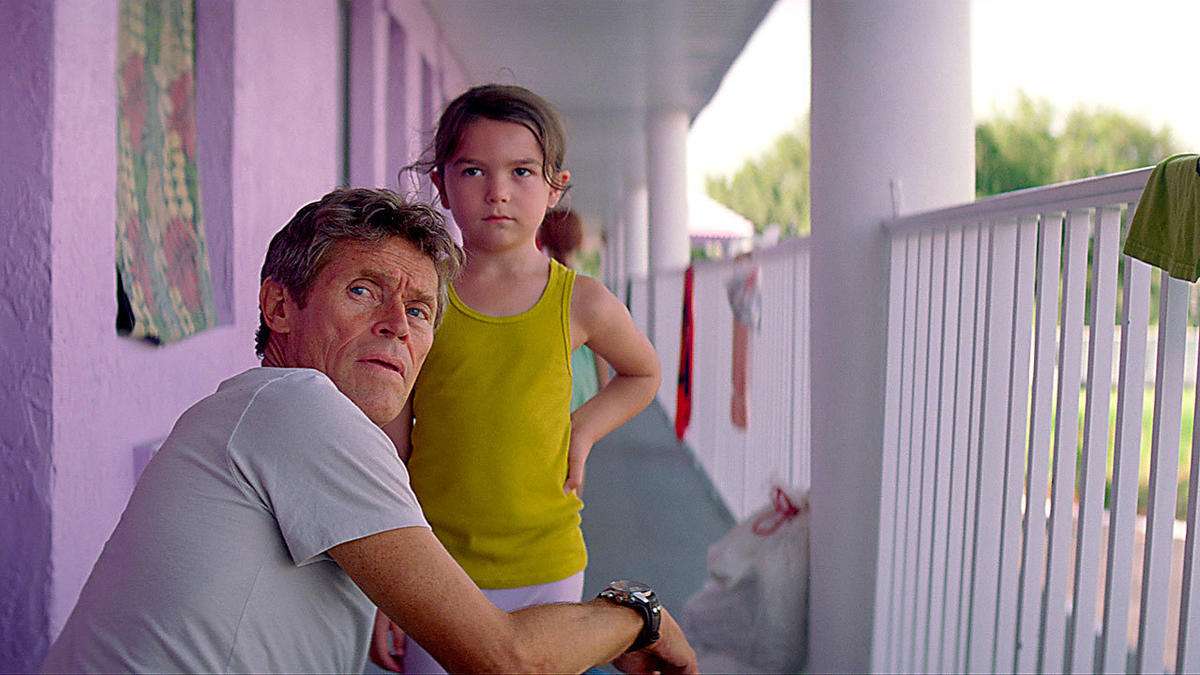
Normal human relationships have ups and downs. They are built on many factors, but the most influential is the circumstances in which these people meet – what they want and expect. Halley from “The Florida Project” wants a peaceful, secure life with her daughter. How does she expect to achieve that? Quickly and easily. Even though she’s on the verge of becoming homeless, she keeps taking risks. Her failure can be understood but not excused. Her encounters with Bobby are similar to those between Jane and Sadie – he’s the guardian figure; somehow, it’s up to him to keep her from crossing the line.
To Willem Dafoe‘s character, taking care of the motel doesn’t necessarily mean maintaining the good look of the building itself, but also keeping the area safe and helping the residents not to be under so much pressure. Most of these people are on the brink of destitution, finding ways to pay their rent on time but through questionable methods. And this fate is not a fault of the sociopolitical system in which they live or the upbringing inherited from their parents before that. No, they are the ones responsible for their tragic state.
In “The Florida Project,” the main point of view is that of the children, the ones we would supposedly accept as the ones suffering from the unfair actions of adults. But in fact, seeing Moonee and her friends, despite the problems due to their grim surroundings, most of the time, they seem happy, full of energy, and enjoying their games. Yes, they’re not privileged and surrounded by toys or the latest model iPhone. Still, one doesn’t get the impression that they have any serious deficiencies that are capable of affecting their mental health badly or causing any envy or hatred towards other people. It’s quite the opposite – Moonee is always ready to make new acquaintances and help newcomer kids adjust to the motel.
The keyword for Sean Baker’s films is “community.” Without exception, each of his characters belongs to one. Whether a transgender sex worker or a porn actor thrown out on the street, each of them wants to have a sanctuary, but the differences in their development come from the degree of selfishness they allow to guide them in achieving that goal. They know they are helpless once they are alone. They need other people to get through this challenging period in their lives.
But for the most part, they remain true to themselves, to their instincts and nature, which has driven them to their bottom, and for this reason, they cannot find a way out of the problems that constantly haunt them. Most of them do not grow up. We see them being presented with an opportunity to change through nothing more than luck, but they don’t because they don’t know how. They believe in achieving what they dream of because they have deluded themselves into thinking they deserve it. And in that, these characters are like us – they believe in the American dream, even though it has abandoned them a long, long time ago.

